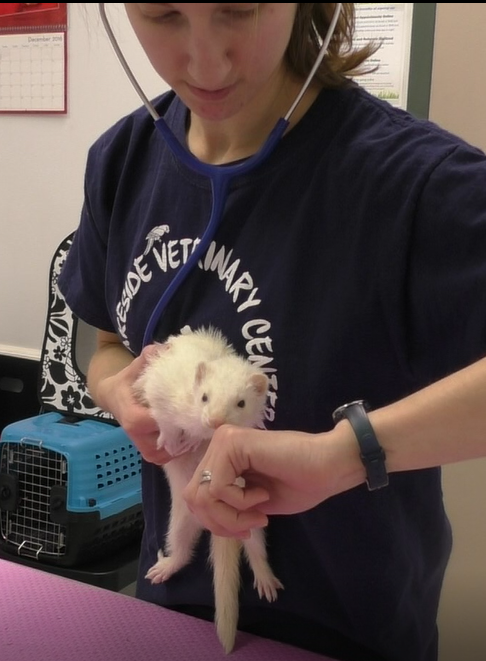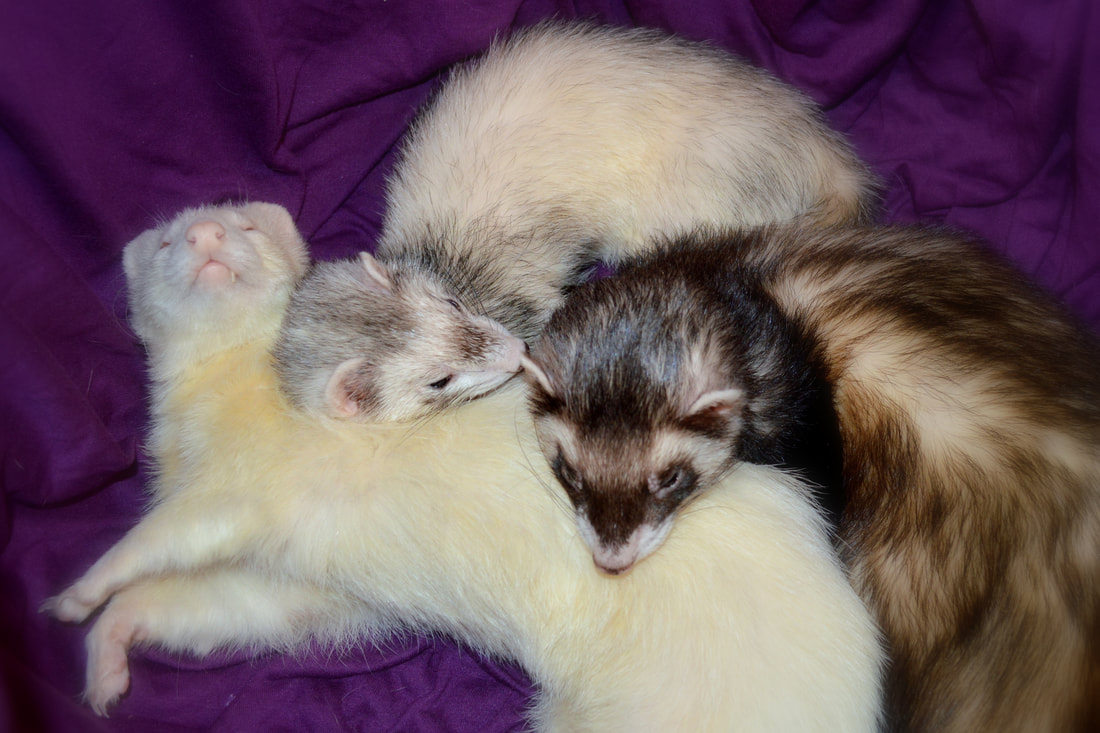|
Many people have the false assumption that with a ferret's smaller size, they should be less expensive than owning a dog or cat. While that might be true in regards to food costs, it certainly is not the case with their veterinary care. Ferrets require rabies vaccines and annual exams just like dogs and cats. Canine distemper vaccines are also recommended for ferrets by many veterinarians, although opinions vary. A typical lifespan for a ferret is five to ten years, although some may live up to ten years. Unfortunately, they are prone to a variety of diseases such as adrenal disease, insulinoma. Ferrets are also mischievous and can easily get into trouble which might cause a costly emergency vet visit. All of these factors add up! To help give potential ferret owners an idea of their future costs, we have broken down the costs by year for three of our ferrets.
Sophie passed away in February 2017 at the age of six years old. Gambit and Samson are still with us. Gambit is currently six years old and was diagnosed with insulinoma earlier this year. Samson is currently five years old. When ferrets are younger, an annual and well visit can cost between $50 and $75. As they get older, it is recommended that they have their blood work done which can increase the cost by $140 or more. Surgeries are often extremely costly. In 2014, Samson got access to a screwdriver and decided to chew on it. He knocked out one of his fangs at the gum line and had to have surgery to remove the remnants of the tooth. Samson had a second surgery in 2017 when he had strange bumps on his toe pads and also had his spleen aspirated as it has been enlarged, which is common for older ferrets.
In 2016, Sophie started showing health problems which required treatment. In 2017 she was euthanized when her quality of life decreased to a point that it was unlikely that she would recover. It was believed that she had contracted the ferret version of FIP which can happen to some ferrets who are exposed to ECE and then the virus mutates to something similar to FIP. Since Gambit's diagnosis of insulinoma, it costs roughly $130 per month for him to have his glucose level checked and to have his medications refilled. This cost may increase as the disease progresses. For some ferrets with insulinoma, surgery may be an option. At six years old, surgery seems to be an unnecessary stress on his system. With multiple ferrets, the health costs will be higher. Here at Ferrets and Friends, we think our ferrets are worth every penny!
8 Comments
|
About the blogFerrets and Friends, LLC has four writers bringing you information on a variety of topics from pets to wildlife, education to conservation, and from new developments in our business to information about our industry. Learn something new each week! Archives
August 2020
Categories
All
|


 RSS Feed
RSS Feed